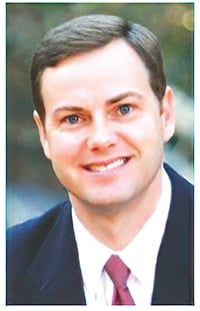Solar Projects – not all are welcome!
 By Horace McQueen
By Horace McQueen
Saddling our taxpayers with tax abatements and other giveaways for new energy producing installations is being played out all over Texas. The common refrain from the fast-talkers is that if county commissioners, school board members and city councils don’t cooperate, the projects will end up somewhere else. So be it! And it’s not just tax abatements! Taking large farms out of food production is also to be considered.
Several big—and I mean multi-million dollar—solar farms may be headed for Houston County. It would take thousands of productive acres to house the solar farms. The most talked about solar farm on the drawing board is on FM 2022—located about four miles from Crockett, just to the north of Hurricane Bayou. The property is a part of Stalwart Ranch—Attebury Division. Stalwart has several thousand acres in this ranch. The property has frontage on both sides of the highway and extends past the “Egg and Butter Road” on the west side.
Ask questions of our “leadership” and push for information about solar projects being planned. Any member of the local school board, city council or commissioners’ court should be freely sharing any and all information they have received. Several thoughts come to mind if a solar farm comes to our neck of the woods. One is the huge loss in local tax collections if the installation is not taxed at actual cost of construction.
Another big consideration is taxpayers are offered smoke and mirrors about the workers needed to build a solar farm. Granted the construction phase will bring in workers for a short time. After the project is complete, operating a large solar farm—covering hundreds of acres—will only employ four workers or fewer. Finally, there is ownership of the farm and equipment. By the time the farm is ready to produce electricity—and if it’s not cloudy or raining—the entire farm could well be owned by large corporations in Spain or other countries thousands of miles from the USA!
Several of our elected state officials want to restrict ownership of land in Texas by China. Frankly I would rather a Chinese farmer own a corn farm down the road from our farm rather than a massive solar farm that could be sabotaged, cutting off power to thousands of homes, hospitals and businesses. If we are finally going to stand up for America, let’s keep ownership of our energy producers in the hands of our own citizens! That’s –30—This email address is being protected from spambots. You need JavaScript enabled to view it.
- Hits: 1544


 By Tony Farkas
By Tony Farkas By Danny Tyree
By Danny Tyree By Rep. Trent Ashby
By Rep. Trent Ashby